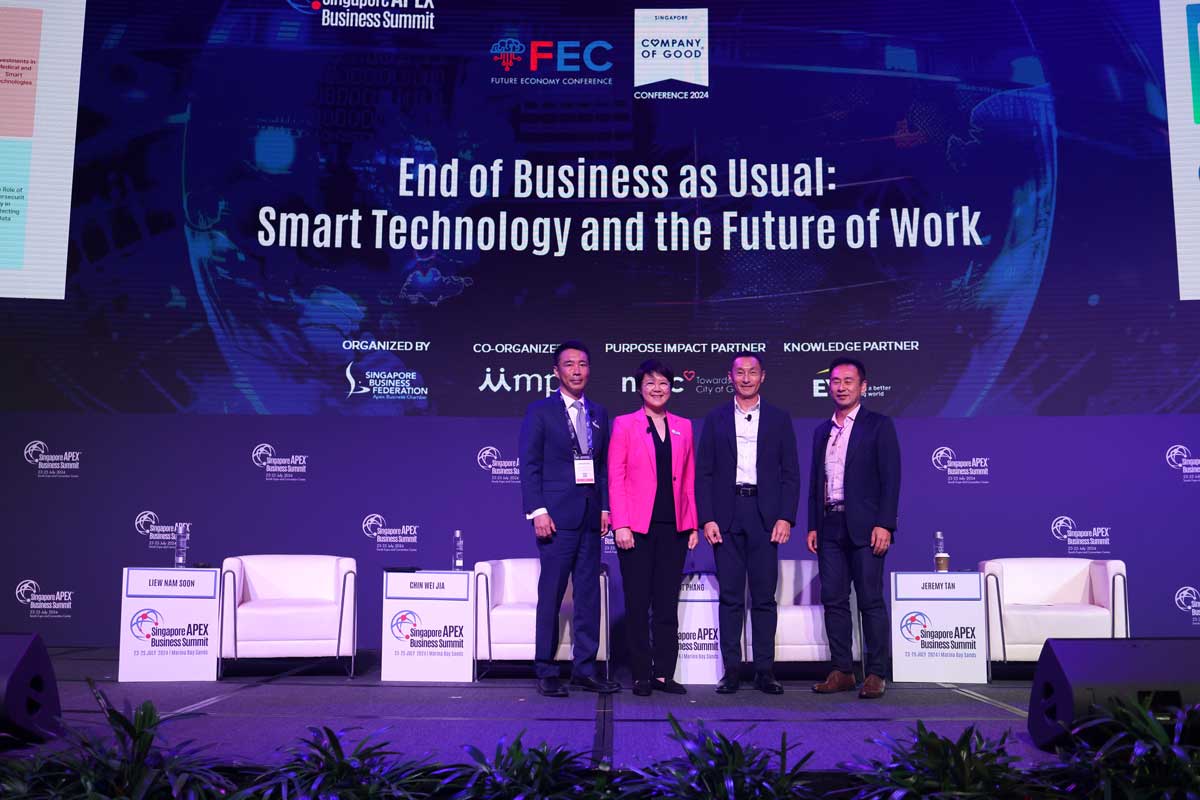
Date published: 23 July 2024
Singapore's economy achieved real value-added growth of 2.8% per annum between 2016 and 2023, despite the pandemic shock. Labour productivity over the same period grew by 2.1% annually.
Deputy Prime Minister Heng Swee Keat revealed this today when he launched the “Transforming the Singapore Economy” report at the Singapore Apex Business Summit 2024, held at the Sand Expo and Convention Centre. The first day of the Summit features the Future Economy Conference organised by SBF , which was held in conjunction with the Company of Good Conference organised by the National Volunteer and Philanthropy Centre.
Referencing economic transformation over the past eight years, DPM Heng said that while growth across sectors varied due to the intensity of competition as well as exogenous and cyclical factors, Singapore's efforts in transformation have grown the overall economy for Singaporeans and workers in Singapore.
He called on businesses to be prepared for the future, and to be prepared to change. DPM Heng who was the Guest of Honour for the conference themed, 'End of Business as Usual: Smart Technology and the Future of Work', also launched the 'Transforming the Singapore Economy Report'. The report noted the contributions of the many stakeholders who contributed to Singapore's economic transformation in the past several years, while highlighting Singapore's economic transformation efforts since 2016.
These efforts have been marked by expanded partnerships within and across sectors, and action across the economy to drive transformation. In particular, the Report reflects on the development and implementation of the Industry Transformation Maps (ITMs) across 23 key sectors (covering about 80 per cent of the economy).
In future, businesses will be buffeted by seismic digital shifts and emerging smart technologies. Business leaders cannot outsource this responsibility and need to be involved in digitalisation. According to Jeremy Tan, co-founder of Tin Men Capital, leaders need to get on board even as they introduce change, for it to be effective. He adds, “How often (have) you been asked to use the software, and we're all busy and in the interest of time, you just go back to the old ways, and you are not on board, and the chain is broken”.
Vincent Phang, Group CEO of Singapore Post, acknowledges that innovation is always going to be a choice. Along with the choice, he said, “There will be consequences, confusion, and clarity, and there will be opportunities for conflict”. He urged organisations to go back to their purpose and ask what are the things that clearly matter to them.
Just as digitalisation can be a business' competitive advantage, so can sustainability. This was discussed during a panel which included Aileen Tan, SingTel Group's group chief people and sustainability officer. To be proactive in sustaining this agenda across her company, she said “everybody owned the sustainability agenda”. From a business perspective, she said theythat businesses could turn sustainability efforts into a competitive advantage and opportunity. It can also attract the best talent to work for the company.
The importance of partnerships was highlighted throughout the SABS conference, and a key message was that businesses should bring resources and expertise together and adopt holistic, integrated solutions for the benefit of all. He also called upon companies to venture overseas and noted that overseas companies that set up in Singapore also want to use Singapore as a base to expand into the region.
